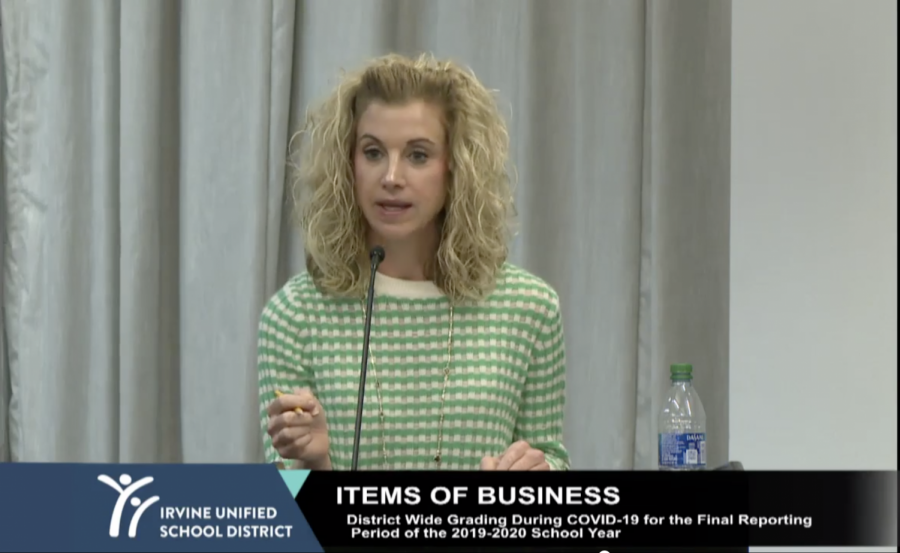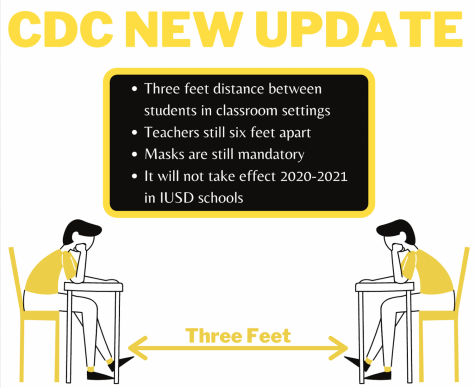Irvine Unified Adopts Credit / No Credit System for Spring Semester
Photo Courtesy of Irvine Unified School District
Following guidance from the California Board of Education and “from UC, CSU and elite university admissions officials, and feedback from IUSD principals, teachers and leadership,” the IUSD Board of Education unanimously voted in favor of a credit or no credit grading system on April 14.
April 15, 2020
The Irvine Unified School District Board of Education decided on April 14 to switch to a credit or no credit system for the final reporting period of the 2019-20 academic year for all students in light of the rapidly-changing COVID-19 pandemic situation
“The Board’s decision included direction from the State Board of Education that requires districts to implement grading practices that ‘do no harm’ to students during emergency distance learning… The Board set a clear expectation that teachers, staff and administrators remain focused on keeping IUSD students highly engaged, connected, and invested in their learning,” according to the Irvine Unified COVID-19 resource page.
The guidelines behind what constitutes credit versus no credit will not necessarily be based on students’ current letter grades. Rather, in order to ensure that students continue to be engaged in their learning, credit will be determined on a combination of performance and completion both prior to and during emergency distance learning.
According to email correspondence from principal John Pehrson, students will receive a grade of “CR” for credit or “NC” for no credit. Credit will be counted toward graduation requirements but not impact grade point averages (GPA).
IUSD superintendent Terry Walker sent out a letter and FAQ resource with more detailed information to the community on April 15.
A credit or no credit system is intended to alleviate the academic pressure students may feel on top of the uncertainty arising from the pandemic. As students face different circumstances at home, from family situations to limited internet accessibility, this system avoids penalizing students for circumstances outside of their control and promotes equity in learning.
Northwood High junior Colman Sun was one student who advocated for the change to credit / no credit at the April 14 board meeting.
“Due to the current crisis, students have been sent home to practice social distancing, where many of which have been sent home to circumstances in which they are housing or food insecure, working full-time jobs, have childcare/must care for the elderly, etc.,” Sun said. “These circumstances marginalize students and render them incapable of achieving grades that are truly representative of who they are.”
As high schools across the country adapt to the situation, many colleges and universities have expressed that admissions will account for the pandemic’s impact on education, especially for current juniors.
The UCs, for example, suspended the SAT/ACT requirement and will allow credit/no credit grades for 2021 applicants. The College Board additionally modified its exam structure for the 2020 Advanced Placement exams.
Prestigious universities across the nation, including Brown, Columbia and Yale Universities, have similarly switched to pass-fail grading systems for their own classes, according to NPR.
“I think this system is the fairest way for [teachers] to grade us right now because of how unpredictable this whole situation has been,” sophomore Michelle Kim said. “It’s a matter of equity… it’s not perfect, but everyone’s circumstances are different. Not everyone has the same access to education or internet or healthcare, so I think we all just need to try our best to adapt.”
This story will continue to be updated as more details are confirmed.















